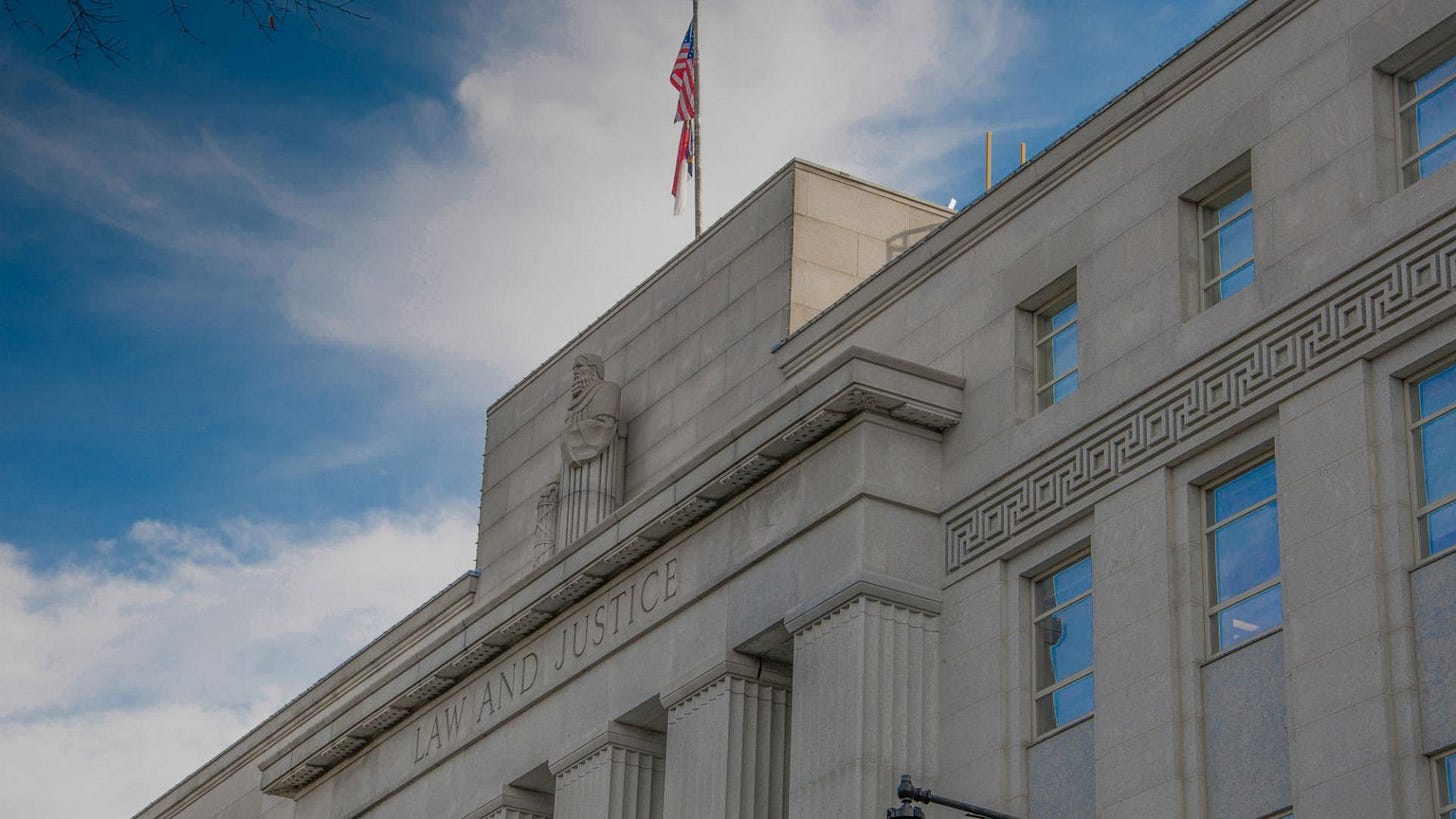BREAKING: NC Supreme Court Halts Ballot Cure Process as Riggs and Griffin Battle Over Disputed Election
Temporary stay preserves the status quo while the justices review whether to take the case on appeal. Election officials will hold off on any ballot cure activities until high court decision.
Previous HSU Story: NC Court Ruling Puts 65,000 Ballots on Hold — What Holly Springs and Apex Voters Must Do to Protect Their Vote
Holly Springs, NC, Apr. 7, 2025 — The North Carolina Supreme Court has temporarily halted enforcement of a sweeping lower court decision that would have launched a controversial ballot “cure” process five months after the 2024 election. The decision comes amid an escalating legal fight between Associate Justice Allison Riggs and Court of Appeals Judge Jefferson Griffin over the outcome of their razor-thin race for a seat on the state’s highest court.
Justice Riggs won the November 2024 election for Supreme Court Seat 6 by just 734 votes over Griffin. But Griffin challenged the result, filing a series of election protests that raised three central concerns: whether tens of thousands of voters had incomplete registration information, whether overseas and military voters failed to submit required photo ID, and whether adult children of North Carolinians living abroad were properly eligible to vote.
Initial Action by the State Board of Elections
On December 13, 2024, the North Carolina State Board of Elections unanimously dismissed all three of Griffin’s protest categories, citing failure to meet notice requirements and lack of probable cause of wrongdoing. The Board found that voters were not adequately notified that their ballots were being challenged, particularly criticizing Griffin's use of bulk mail postcards with QR codes as insufficient notice.
The Board also concluded that existing state and federal election laws permitted the challenged voter categories. These included long-standing rules for military and overseas voters (UMOVA) and statutory provisions allowing adult children of North Carolinians abroad to vote, even if they never resided in the state.
Court Battles Begin
Griffin appealed the Board’s dismissal to Wake County Superior Court, which upheld the Board’s rulings on February 7, 2025. Griffin then took his case to the North Carolina Court of Appeals.
In a 2-1 ruling issued on April 4, 2025, the Court of Appeals reversed the lower court and ordered a far-reaching ballot cure process. The ruling required county election boards to identify voters who lacked certain ID or registration details and give them 15 business days to submit additional information. The court held that ballots missing this information could not be counted without the cure process, even months after Election Day.
Supreme Court Steps In
With the Appeals Court directing action to begin by 5 p.m. on April 7, both the State Board of Elections and Justice Riggs filed emergency motions with the North Carolina Supreme Court to halt the process while the justices consider appeals. The Supreme Court granted both motions for a temporary stay on April 7. Justice Riggs was recused from the decision.
Key Legal Positions
Griffin’s Argument: He contends that ballots lacking full registration information or photo ID are legally invalid, and that the state improperly counted votes from individuals not meeting residency requirements. He asserts that the Board and courts must enforce voter ID and registration laws uniformly to protect election integrity.
Riggs’ Defense: Riggs argues that Griffin’s challenges are untimely, threaten to disenfranchise thousands of lawful voters, and violate due process. She also asserts that North Carolina law does not require photo ID from overseas voters and that the challenged voter categories were approved under long-standing rules. She accuses Griffin of exploiting vague regulations and creating confusion post-election.
Court of Appeals Majority: They sided with Griffin on legal grounds, stating the law does require certain registration and ID standards, and that the Board overstepped by dismissing protests without a full hearing.
Court of Appeals Dissent: Judge Hampson dissented strongly, warning that the majority’s ruling could disenfranchise voters months after an election, create chaos, and set a troubling precedent for election challenges.
What’s Next?
The temporary stay from the Supreme Court preserves the status quo while the justices review whether to take up the case on appeal. Meanwhile, the state’s election officials will hold off on any ballot cure activities. A decision on whether the high court will hear the case could come within days.
If accepted, the case will offer the North Carolina Supreme Court a critical opportunity to clarify the balance between election integrity, administrative discretion, and voter rights in close contests. Until then, the final outcome of the 2024 race for Seat 6 remains undecided.
Previous HSU Story: NC Court Ruling Puts 65,000 Ballots on Hold — What Holly Springs and Apex Voters Must Do to Protect Their Vote

